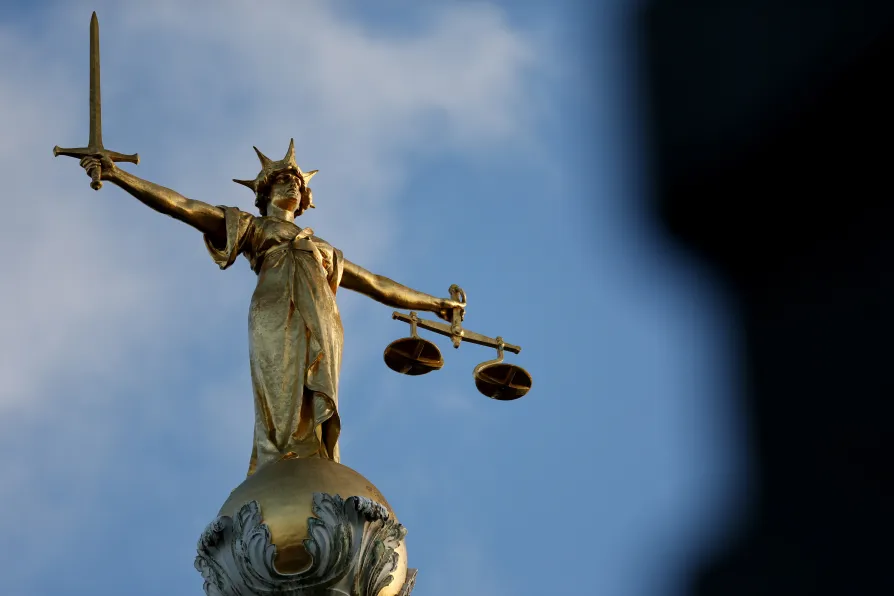
 FW Pomeroy's Statue of Justice stands atop the Central Criminal Court building, Old Bailey, London
FW Pomeroy's Statue of Justice stands atop the Central Criminal Court building, Old Bailey, London
PUBLIC anger moves MPs. The government’s retreat on the two-child benefit cap reflects pressure from campaigners and trade unions.
But if Keir Starmer and Rachel Reeves have had to temper their attacks on the poorest, they have not let up in their administration’s extraordinary authoritarianism.
This hit a new low with David Lammy’s proposal this week to abolish jury trials for anything other than rape, murder, manslaughter and certain offences passing a “public interest test;” and to allow judges to determine guilt on their own where the sentence is anything less than five years in prison.
This is more extreme even than the proposals by Court of Appeal judge Sir Brian Leveson earlier this year. His recommendation was that defendants should lose the right to opt for a jury trial when the maximum sentence was two years or less.
As the Morning Star detailed at the time, Leveson’s recommendations are dangerous and undemocratic.
They use the undoubted backlog in court cases, and the years-long delays that result, to argue for restricting the right to trial by jury as a way of speeding up the process. Lammy wants to go further for “maximum impact” — proving even less concerned at eroding British citizens’ rights than Leveson is.
The reason for the backlog in cases is straightforward. It is a hangover from Tory austerity.
The Conservatives slashed funding for justice by a third over the 2010s. England and Wales lost almost half their court buildings in the same decade, the mass sell-off dubbed an efficiency saving but delaying access to justice.
Legal aid cuts contributed too, starving criminal justice of funds and leading to a shortage of lawyers and judges, while increasing the number of people representing themselves, which slows hearings as few lay people are familiar with the law.
The resulting mess is now seized on by Labour as an excuse to sweep away the right to trial by jury in most cases.
The government insists this will not affect the right to a fair trial. But we know due process is not important to Starmer or his gang.
His leadership of the Labour Party was characterised from the start by the suspension of members and even whole constituency parties, expulsions for retrospective offences (such as having engaged with organisations that were only later prohibited) in defiance of natural justice, and the rigging of everything from disciplinaries to parliamentary selections.
Few beyond the left cared at the time — the internal management of political parties rarely interests the public, and a mass media who made Labour procedures headline news when Jeremy Corbyn led the party had no interest in Starmer’s stitch-ups. But it is logical to assume that people who are happy to bully, ban and fix their way to power within a party will behave in a similar way in government.
And they have done: Labour has accelerated the erosion of citizens’ protest rights, granting police still greater power to obstruct peaceful demonstrations — and, following the ludicrous ban on direct action group Palestine Action as “terrorists,” presides regularly over mass arrests of people sitting down holding signs.
Protesters facing jail for breaching often arbitrary and confusing police conditions, activists taking action over the climate emergency or in international solidarity, would lose the safeguard of a jury of ordinary people who may judge the justice or otherwise of their actions.
The mysterious replacement of the judge due to hear a legal challenge to the Palestine Action ban — the same judge was removed earlier this year from a hearing on the legality of certain arms sales to Israel — reinforces suspicions that this is a government that will fix trials when and where it can.
The fightback against attacks on our liberties must gain the same profile across the left as the fight against government cuts. The two are linked: and the government can be defeated.










